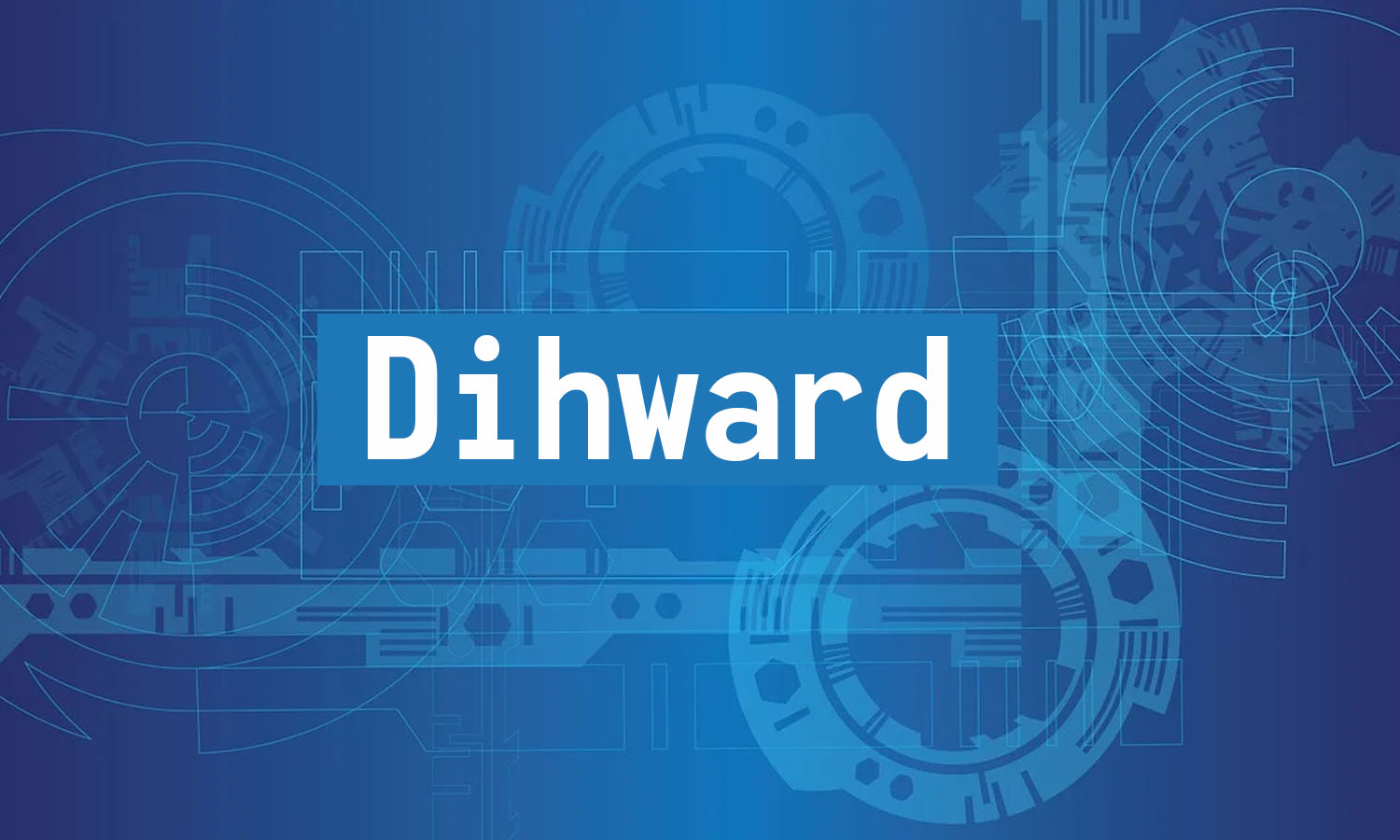Entertainment
Dihward: Moving Forward in the Digital World

- Share
- Tweet /home/u433845138/domains/newsmm.co.uk/public_html/wp-content/plugins/mvp-social-buttons/mvp-social-buttons.php on line 71
https://newsmm.co.uk/wp-content/uploads/2025/07/bb-b-1000x600.jpg&description=Dihward: Moving Forward in the Digital World', 'pinterestShare', 'width=750,height=350'); return false;" title="Pin This Post">
In today’s super-connected world, new terms and ideas often appear, trying to capture the fast changes happening around us. One such idea, gaining attention, is “Dihward.” It’s a blend of “digital” and “forward,” representing a fresh way of thinking about our relationship with technology. “Dihward” is more than just a buzzword; it’s a philosophy that encourages us to be innovative, collaborative, and ethical in the ever-evolving digital landscape.
What Exactly is the “Dihward” Mindset?

At its heart, the “dihward” mindset is about being proactive and thoughtful when it comes to digital advancements. It’s not just about using the latest apps or having the newest gadgets. Instead, it’s about:
- Innovation: Always looking for new and better ways to use technology. This means being creative, thinking outside the box, and not being afraid to try new things. For businesses, this could mean developing new digital products or services. For individuals, it might mean finding smart ways to use existing tools to solve daily problems.
- Collaboration: Working together in the digital space. The internet connects us all, and “dihward” encourages us to use this connection to share ideas, learn from each other, and build strong online communities. Think about how open-source software is built by many people working together, or how online learning platforms allow students from all over the world to collaborate on projects.
- Adaptability: Being flexible and ready to change. The digital world moves incredibly fast. What’s new today might be old tomorrow. A “dihward” person or organization can quickly learn new skills, adjust to new tools, and change their plans when needed. This helps them stay relevant and successful.
- Ethical Growth: Using technology responsibly and fairly. This is a very important part of “dihward.” It means thinking about the impact of our digital actions on privacy, security, and society as a whole. It’s about building technology that is transparent, accountable, and works for the good of everyone, not just a few.
Why is “Dihward” So Important Now?

We are living in an exciting but also challenging time. The digital world offers amazing opportunities, but it also comes with new problems. “Dihward” helps us face these challenges head-on.
For Businesses: In the past, companies might have taken a long time to change. Now, with “dihward,” businesses are learning to be more agile. This means they can respond quickly to customer needs, develop new products faster, and work more efficiently. For example, using digital tools for project management allows teams to work together even if they are in different locations, leading to quicker decisions and more creative solutions. Companies are also using “dihward” principles to promote ethical practices, making sure their digital products are safe and trustworthy for users.
For Education: The way we learn has changed a lot. Online courses, digital textbooks, and educational apps mean that learning is no longer limited to physical classrooms. “Dihward” in education means making sure that everyone has access to these digital learning tools and knows how to use them effectively. It’s about digital inclusion, closing the “digital divide” where some people have more access or skills than others. This helps make education more accessible and fair for everyone.
For Individuals and Society: Our daily lives are deeply connected to the digital world. From how we communicate with friends and family to how we get our news, technology is everywhere. “Dihward” encourages us to be smart digital citizens. This means understanding how to protect our privacy online, how to spot false information, and how to use social media in a healthy way. It’s about making sure that technology helps us build stronger communities and better lives, rather than causing isolation or spreading negativity.
How Does “Dihward” Work in Practice?
Let’s look at some examples of how the “dihward” mindset can be applied:
- Artificial Intelligence (AI): AI is developing rapidly. A “dihward” approach to AI means not just creating powerful AI systems, but also thinking about their ethical implications. How do we ensure AI is fair, doesn’t discriminate, and respects human values? This involves ongoing discussions and development of ethical guidelines for AI.
- Blockchain Technology: This technology is behind cryptocurrencies like Bitcoin, but it has many other uses, like making supply chains more transparent or securing digital identities. “Dihward” would involve exploring how blockchain can be used ethically and for the benefit of society, rather than just for financial gain.
- Internet of Things (IoT): This refers to everyday objects connected to the internet, like smart home devices or wearable tech. A “dihward” perspective here means designing these devices with privacy and security in mind, making sure they genuinely improve our lives without collecting too much personal data or being vulnerable to hacking.
- Remote Work and Digital Collaboration Tools: The pandemic showed us how important digital tools are for working from anywhere. “Dihward” means not just using these tools, but constantly improving how we collaborate online, making virtual meetings more effective, and ensuring teams feel connected even when they’re not in the same room. This could involve exploring new platforms, virtual reality workspaces, or innovative communication strategies.
Challenges and the Path Forward
While “dihward” offers a positive vision, achieving it isn’t always easy. We face challenges like:
- The Digital Divide: Not everyone has equal access to technology or the skills to use it. Bridging this gap requires effort from governments, organizations, and communities to provide affordable internet, digital literacy training, and accessible devices.
- Privacy and Security Concerns: With more of our lives online, protecting our personal information and guarding against cyber threats is crucial. “Dihward” emphasizes building secure systems and educating users about online safety.
- Misinformation and Disinformation: The digital world can spread false information very quickly. A “dihward” approach encourages critical thinking, media literacy, and supporting reliable sources of information.
- Ethical Dilemmas: As technology becomes more advanced, new ethical questions arise. For example, how much data should companies collect? How do we ensure fairness in algorithms? “Dihward” means having open conversations and setting clear ethical standards.
Moving “dihward” requires continuous effort. It’s about learning, adapting, and being responsible. It’s not a one-time project, but an ongoing journey. Governments need to create fair rules, businesses need to build ethical products, and individuals need to be smart and responsible users of technology.
Conclusion
“Dihward” is a powerful concept that helps us make sense of our fast-paced digital world. By focusing on innovation, collaboration, adaptability, and ethical growth, we can harness the power of technology to create a better future for everyone. It’s about being forward-thinking and ensuring that our digital journey leads to positive outcomes. By embracing the “dihward” mindset, we can all contribute to a digital world that is not only smart and connected but also fair, safe, and beneficial for humanity. Let’s move “dihward” together, shaping a digital future we can all be proud of.
Frequently Asked Questions about “Dihward”
Here are 10 common questions about the “Dihward” concept:
1. What does “Dihward” literally mean? “Dihward” is a new term that combines “digital” and “forward.” It means moving ahead in the digital world with a modern, progressive mindset.
2. Is “Dihward” a specific technology or a general idea? It’s a general idea or philosophy, not a specific technology. It describes a way of approaching and using all kinds of digital technologies.
3. Who should adopt the “Dihward” mindset? Everyone can benefit! Individuals, businesses, educators, and even governments can adopt this mindset to navigate and contribute positively to the digital world.
4. How does “Dihward” relate to innovation? Innovation is a core part of “dihward.” It means constantly looking for new and better ways to use digital tools and create new solutions.
5. Why is collaboration important in the “Dihward” concept? The digital world connects people globally. Collaboration allows us to share knowledge, work together on projects, and achieve more collectively than we could alone.
6. What does “ethical growth” mean in the context of “Dihward”? Ethical growth means using technology responsibly, considering its impact on privacy, security, and society. It’s about making sure digital progress benefits everyone fairly.
7. How can businesses apply “Dihward” principles? Businesses can use “dihward” by being agile, using digital tools for better teamwork, developing ethical products, and quickly adapting to market changes.
8. Does “Dihward” address the “digital divide”? Yes, it encourages efforts to close the digital divide by promoting digital inclusion, which means ensuring everyone has access to technology and the skills to use it.
9. Is “Dihward” only for tech experts? Not at all! While tech experts play a big role, “dihward” is for anyone who uses technology and wants to understand how to interact with it smartly and responsibly.
10. What’s the main goal of adopting a “Dihward” approach? The main goal is to shape a digital future that is innovative, collaborative, ethical, and beneficial for humanity, rather than just letting technology develop without guidance.
Click for more amazing info. News MM

-

 Celebrity8 months ago
Celebrity8 months agoIndia Rose Brittenham: All You Need to Know About Heather Thomas’ Daughter
-

 Celebrity8 months ago
Celebrity8 months agoMargot Rooker: All You Need to Know About Michael Rooker’s Wife
-

 Celebrity8 months ago
Celebrity8 months agoNadia Farmiga? All You Need to Know About Taissa Farmiga’s Sister
-

 Celebrity8 months ago
Celebrity8 months agoRobert Noah? All You Need to Know About Trevor Noah’s Father
-

 Celebrity7 months ago
Celebrity7 months agoJackie Witte? All You Need to Know About Paul Newman’s First Wife
-

 Celebrity8 months ago
Celebrity8 months agoCheryl Pistono? All You Need to Know About Kareem Abdul-Jabbar’s Ex-Girlfriend
-

 Celebrity8 months ago
Celebrity8 months agoAbigail S. Koppel? All You Need to Know About Leslie Wexner’s Wife
-

 Celebrity7 months ago
Celebrity7 months agoWho is the Father of Jay-Z? Biography of Adnis Reeves












